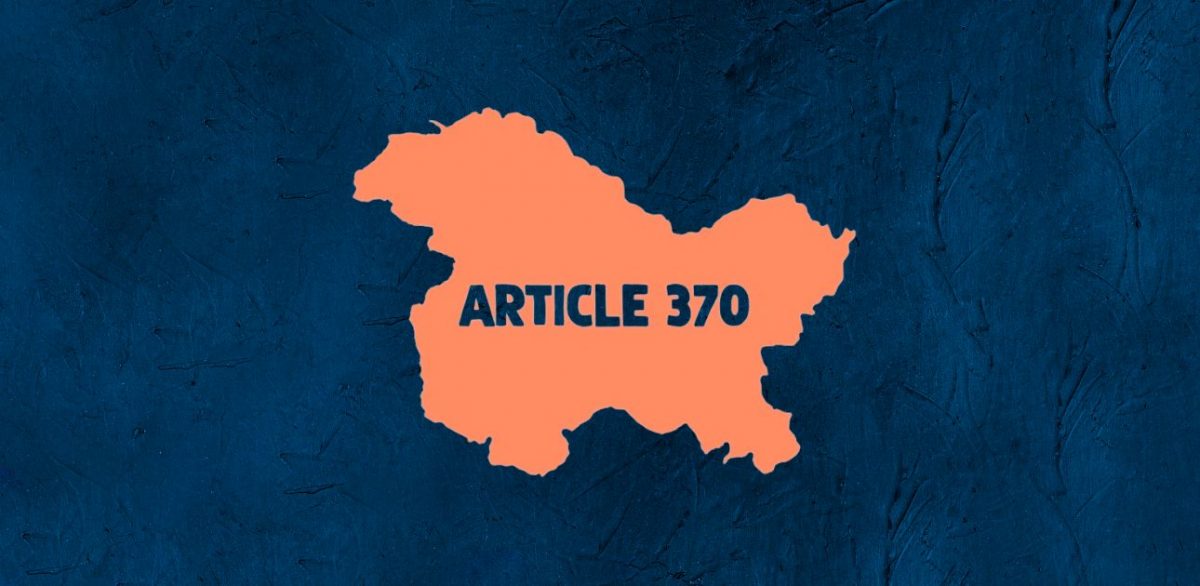In addition to hundreds of national parks, lakes, mountains, and other wonders to appreciate, the Canadian landscape is dotted with several renowned and highly accredited public and private universities.

Before enrolling in an MBA programme in Canada, students should be aware of a number of important considerations, including eligibility requirements, cost structure, scholarships, and the long-term professional possibilities of studying overseas. In addition to being the world’s second-largest country in terms of land area, Canada has a great deal to offer both tourists and researchers. In addition to hundreds of national parks, lakes, mountains, and other wonders to appreciate, the Canadian landscape is dotted with several renowned and highly accredited public and private universities. Students from all over the world who wish to study for an MBA in Canada are typically motivated by a desire to work in the country after graduation. A variety of factors draw international students to Canada, but the country’s rich multicultural demography is one that should not be overlooked. International students from all over the world are welcomed and feel entirely at home in Canada, which is home to more than 250 different ethnicities.
What are the benefits of pursuing an MBA in Canada?
It’s not difficult to understand why overseas students choose Canada as their destination for higher education, given the country’s stunning scenery, world-class universities, and high overall quality of life. This is way too definitive for those who are interested in earning an MBA degree. The average yearly fee for an MBA programme in Canada ranges from 20,500 to 112,000 CAD, depending on the specialisation and university, which distinguishes it from other countries in that it is the most affordable option.
The Financial Times MBA Rankings 2021 place 11 Canadian colleges in the top 200 of the world’s most prestigious graduate business schools.
The QS MBA rankings (2021) place six Canadian business schools and universities among the world’s top 100 business schools and universities in the world.
According to the worldwide MBA rankings, Canada is home to 20 business schools ranked among the top 200 in the world.
The top 10 courses that international students wish to study in Canada are business management programmes, according to a survey conducted by IIE.
Following graduation, MBA candidates will have an astounding number of job alternatives. The Canadian government supports a diverse spectrum of SMEs and startups, which increases the need for MBA candidates in the country.
MBA programmes available in Canada are classified into the following categories:
There are many various types of MBA degrees offered in Canada to match the needs, interests, and criteria of international students who come to study in the country. Some of the more notable ones are as follows:
MBA Full-Time: If you want to enter the job market as a leader, a full-time MBA in Canada is a good choice. Take advantage of a terrific opportunity to learn more about the diversity of the Canadian workforce by attending this event. Students can complete the course in two years if they work full-time throughout that period. International students must achieve high scores on the GMAT and language proficiency exams in order to be admitted.
MBA (Part-Time): This is an excellent opportunity for applicants who wish to continue working while pursuing their management degrees. Depending on the university you attend, it could take you anywhere from three to six years to earn this degree.
MBA for Executives: This programme is designed for individuals who prefer to work while they study in order to gain valuable company experience in addition to classroom instruction. The curriculum is normally completed in 13 months and results in substantial personal and professional development for the participants.
The Best MBA Programs in Canada
Applications for the MBA in Finance are encouraged from international students who are interested in a career in financial reporting and analysis, portfolio management, corporate finance, market finance, and other relevant subjects. MBA in Finance: The course will last approximately two years on average.
MBA in Human Resources Management: Some of Canada’s most prestigious universities offer excellent MBA in Human Resources Management programmes. People management, the hiring process, training, and staff productivity are some of the areas where you can develop knowledge and establish a career in the firm.
International MBA (IMBA) in Canada: This programme is offered to international students who wish to gain global experience while studying in the country of their choice. You will have the option to participate in international field studies, to follow an integrated curriculum, to take courses all around the world, and to get a credential that is internationally recognised. The curriculum lasts an average of 20 to 28 months, depending on the course.
Taking an MBA in Canada Has Its Advantages

It has its own set of advantages to pursue graduate or postgraduate studies in Canada. One such advantage, for international students, is the possibility to qualify for travel subsidies through the use of an international student identity card. Apart from that, studying for an MBA in Canada is a pleasant experience thanks to the welcoming surroundings of cities such as Montreal, Toronto, Vancouver, Edmonton, Ottawa, and Calgary that cater to students. The following are some additional benefits of studying for postgraduate courses in Canada, in addition to the vibrant culture:
Comprehensive MBA programmes at Canadian business schools provide international students with a diverse exposure to global business while also providing them with the opportunity to compete for renowned scholarships.
Affordability: When compared to other countries such as the United States, the United Kingdom, or even Australia, studying MBA in Canada is considered to be very affordable in terms of both course tuition and living expenses, according to students. Because of the high quality of education available in Canada, it has long been the preferred destination for students aspiring to be future business leaders.
Global Rankings: According to rankings and accreditations such as the Times Higher Education, QS Research, and the Academic Rankings of World Universities, Canada is one of the top countries for international education. The bulk of the best MBA programmes in Canada are ranked pretty high in these international rankings, which are compiled by the Financial Times.
MBA Eligibility in the United States
Because the universities that provide great postgraduate business programmes in Canada have high admissions standards, students wishing to pursue an MBA in Canada must possess a set of specialised qualifications in order to be considered. Here are the specific qualifying requirements that students must meet in order to be considered for admission to and success at prominent business schools in Canada:
Graduate Degree: Students wishing to pursue an MBA at any of Canada’s premier universities must first obtain a graduate degree from a recognised institution. This degree can be in any discipline, but it must be obtained from a respectable institution of higher learning.
If you want to pursue an MBA in Canada, you must first demonstrate your skill in English by passing an English language proficiency examination such as the PTE, TOEFL or IELTS.
Candidates with relevant professional work experience are given more consideration by the majority of Canadian institutions, despite the fact that prior employment in a relevant profession is not a requirement.
Obtaining a High GMAT Score: In addition, some of Canada’s premier business schools require applicants to have a high GMAT score in order to be evaluated for admissions consideration.
The requirements for an MBA in Canada are as follows:
In general, some documentation must be submitted to the right university in Canada in order to complete the application process. It is possible that these criteria will differ from one person to the next. However, we have compiled a list of the most often requested documents for your convenience:
- List of transcripts and certifications from academic institutions
- Scorecard for the Proficiency Exam
- Accounts Payable Statements of Accounts
- Documentation of previous employment experience (if any)
- Letter of Recommendation (LOR) is a document that recommends someone (at least 2)
- Statement of the Objects and Objectives (SOP)
- MBA Research Papers (if needed)
- CV/Resume that has been updated
- Photographs are available upon request.
- In the U.S., a visa is required.
Fees for an MBA in Canada are structured as follows:
It is important for students considering pursuing an MBA in Canada to be familiar with the pricing structures of the several well-known Canadian universities. The majority of MBA programmes in Canada cost between 32,000 and 90,000 USD, which equates to between 24,00,000 and 65,00,000 INR for Indian students studying in the United States. Although there are some other Canadian universities whose MBA course fees range from $5,000 to $13,000, there are some that are far more expensive (i.e., 3 to 10 Lakhs INR). To begin, you must pay the TOEFL, IELTS, Visa application, and health insurance fees. These prices can range from 160 to 250 USD, 185 to 190 USD, 178 USD, and 10,000 USD, respectively, and must be paid before anything else.
Scholarships are available through a variety of programmes.
Because some of Canada’s most famous business schools charge expensive tuition costs, students interested in obtaining an MBA in Canada are more likely to get academic grants. For overseas students, there are a variety of scholarship programmes available to assist them in coping with this financial burden. With the help of these programmes, exceptional students have the opportunity to pursue exciting career possibilities throughout Canada. Scholarships for MBA programmes in Canada range from $1,500 to $10,000, which equates to approximately 1 lakh to 7 lakhs INR for Indian students studying in the country.
Salary and job prospects upon completion of an MBA in Canada
There are numerous opportunities available to the appropriate candidate. Some of the highest incomes paid to MBA graduates are found in the United States. After completing an MBA programme, they will be qualified to work in a variety of industries, including:
- IT services are provided.
- Accounting and consulting services
- Educating oneself
- The health-care industry
- Oil and Natural Gas
- Jobs in the legal field
MBA graduates can also find employment in a variety of departments within the Canadian government, where they can contribute to the smooth operation of the administration. Management graduates have a variety of possibilities, including technical management, sales, marketing, product management, and project management. The best aspect about earning an MBA in Canada is that international students who successfully complete a full-time MBA programme in the country are entitled for a three-year work permit to work in Canada. The diverse business sector in Canada, which operates on a global scale, provides such students with access to a number of work prospects, which include the following:
A large number of Small and Medium-Sized Enterprises (SMEs) in Canada are on the lookout for qualified MBA graduates to assist them in the management of their respective businesses. There are numerous chances for both Indian and international students in this location.
Consulting and finance: The financial services and consulting industries are the most prevalent employers of MBA graduates in Canada, followed by the government. Given the abundance of well-known firms in Canada, a large number of international students choose to obtain an MBA in Finance while studying there.
Even the technology sector, which is one of the fastest-growing sections of a global corporation, is on the lookout for MBA graduates in Canada to join their strategic decision-making teams, according to a recent report. Approximately half a million international students opt to study in Canadian colleges and universities each year, citing visa flexibility and internship opportunities with prominent management companies as reasons. Taking all of this into consideration, the Canadian labour market is quite competitive. In any case, because Canada’s job market is smaller than that of the United States, overseas students must do everything they can to increase their chances of finding a job in the country. Prior to applying for an MBA in Canada, it is recommended that you gain some job experience in the country in order to demonstrate to potential employers that you are familiar with the local market.









Responses